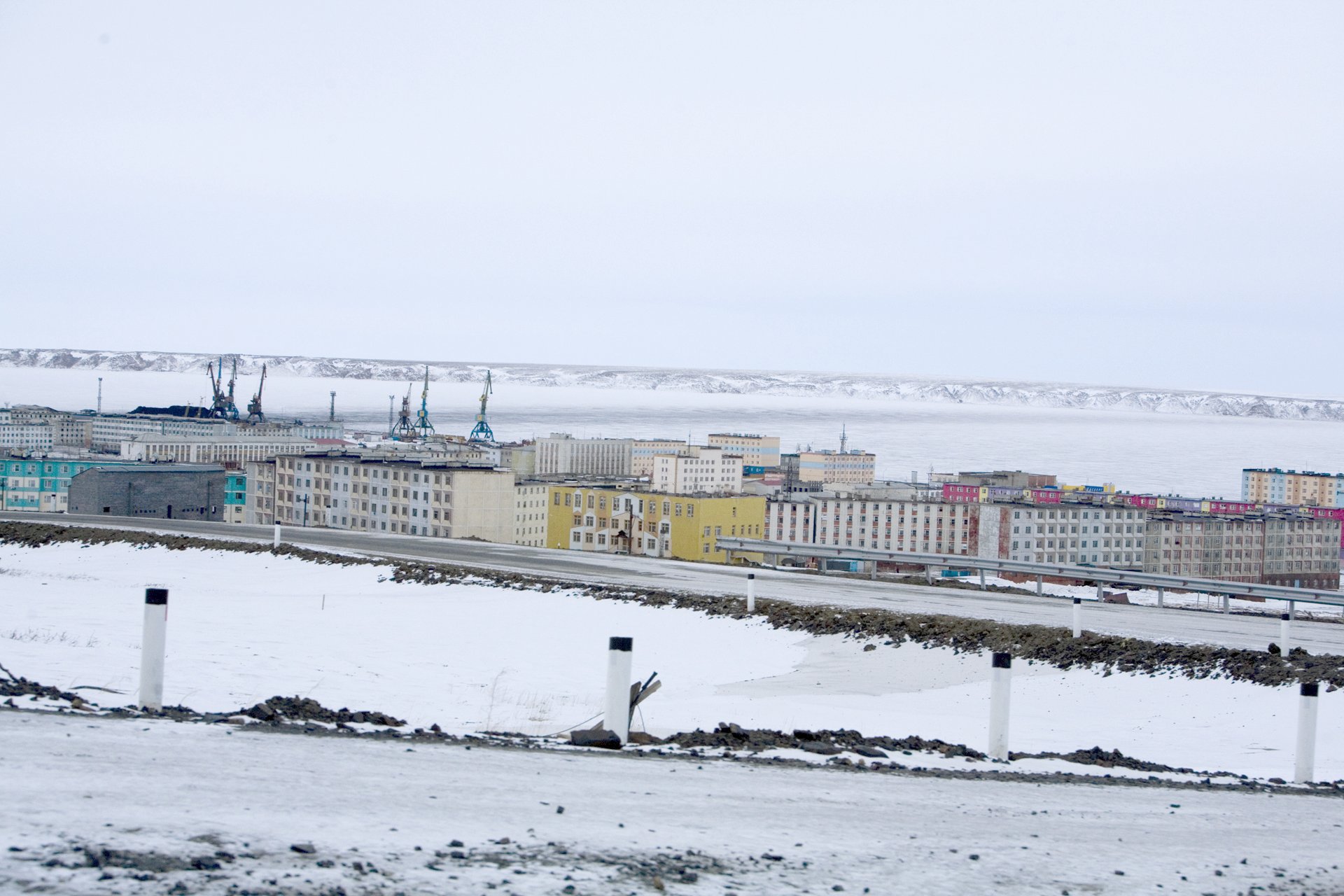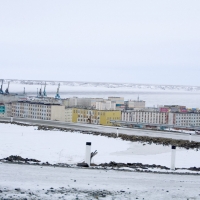BIOMEMBRAT® high performance membrane bioreactor & cross-flow ultrafiltration for northernmost district of Russia
PEVEK, a small town with approximately 4200 inhabitants, belongs to the district of Chukotka in the north-east of Russia between the Bering Sea and the East Siberian Sea. Pevek is located about 500 km north of the Arctic Circle and thus on the same latitude as the North Cape in Europe, which is connected to Chukotka via the Northeast Passage, navigable only during the summer months.

4200 inhabitants certainly produce wastewater, too. In Pevek, they produce approximately 2000 m³/d. In the future, this wastewater shall also be treated for direct discharge into the East Siberian Sea. A sewage treatment plant in a permafrost region: how can this be done? Like all houses and buildings in Pevek, the wastewater treatment plant will be built on piles about 1 m above the ground. In this context, every single square meter of surface and every single ton of weight to be lifted count. It goes without saying that the compact and highly efficient WEHRLE MBR is the ideal solution in this case.
For climatic reasons, the entire plant with balance tank and nitrification reactors will be built in a heatable machine hall. The highly efficient ejector ventilation system ensures an ideal mixing of the tanks. Due to the WEHRLE cross-flow ultrafiltration, the activated sludge is kept in the system. At the same time, the ultrafiltration ensures a solid-free outlet. To sum it up: WEHRLE's MBR technology meets all requirements of this extraordinary project of our partner IEC from Belarus, who has many years of experience in the far north of Russia.
The plant will be shipped 3000 nautical miles via the Northeast Passage from Murmansk to Pevek. The dispatch is scheduled for late summer 2020 and will take about two weeks. The commissioning is scheduled for 2021.

